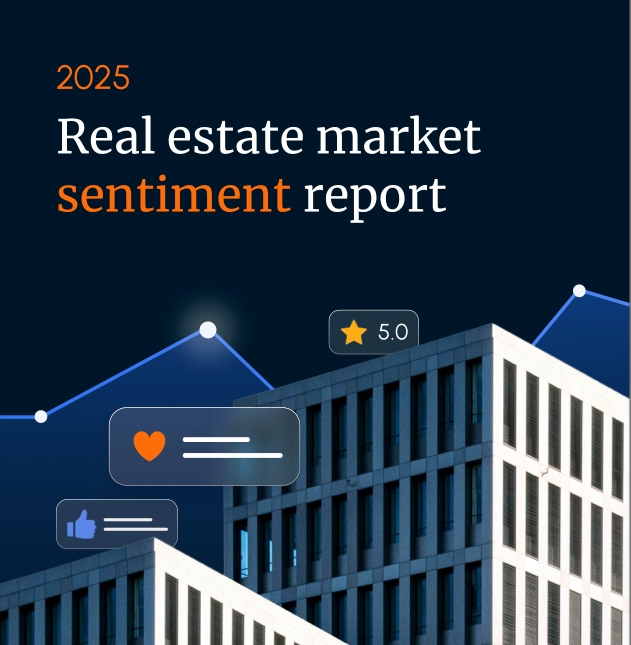Exploring Trends in Commercial Real Estate Brokerage
- Industry News

- Jun 19, 2025
- 4 min read
The world of commercial real estate is ever-evolving. This dynamic field is shaped by market demands, economic conditions, and advances in technology. As businesses adapt, so too does the landscape of commercial real estate brokerage. In this blog post, we will explore the current trends that are influencing this industry and examine their implications for brokers and investors alike.
Current Trends in Commercial Real Estate
There's been a significant shift in how commercial real estate is viewed and utilized. Traditional office spaces are undergoing transformations, while new sectors are emerging. For instance, the rise of remote work has impacted office demand, leading to a need for flexible workspaces and co-working environments. Investors are also looking into more versatile property types to accommodate changing preferences.
The Rise of Flex Spaces and Co-Working
Flex spaces and co-working environments have become increasingly popular. Businesses are recognizing the value of flexibility and adaptability. Companies prefer leasing shared office spaces that allow for growth without the commitment of long-term leases.

According to a report by CBRE, the co-working market has grown significantly, with an expectation for continued expansion. This trend presents opportunities for commercial real estate brokers to represent landlords who adapt their properties for such purposes.
Sustainability in Commercial Real Estate
Sustainability has moved beyond a trend to become a key consideration in commercial real estate. Buildings that prioritize energy efficiency and sustainability are gaining value in the marketplace. Features such as solar panels, green roofs, and sustainable materials are not merely preferences but requirements for modern properties.

Brokers now emphasize sustainability to attract environmentally conscious tenants. As a result, those properties often experience higher occupancy rates and lease renewals. Understanding green building certifications, such as LEED (Leadership in Energy and Environmental Design), becomes essential for brokers to effectively market these properties.
Technology’s Role in Commercial Real Estate
The influence of technology in commercial real estate brokerage cannot be overstated. From virtual tours to AI-driven market analysis, technology is transforming how brokers operate. Software programs can assess trends and help forecast investment potential, providing brokers with valuable tools to assist clients in their decision-making processes.

In addition, technology enhances client experiences. Virtual reality (VR) allows prospective tenants to tour properties remotely, which can be particularly beneficial in the current climate where in-person visits might be limited. By leveraging these technological advancements, brokers can offer exceptional services to clients, thus standing out in a competitive marketplace.
Changing Demographics and Buyer Behavior
Demographic shifts are also influencing commercial real estate trends. Millennials and Gen Z have distinct preferences compared to previous generations. They prioritize accessibility, location, and community over traditional features like size and status. This shift is forcing brokers to rethink their approaches when working with investors and tenants.
For example, mixed-use developments that combine residential, retail, and commercial spaces are gaining traction. These developments cater to the preferences of younger generations who value convenience and community engagement. Brokers need to stay abreast of these changing tastes to help investors make informed property decisions.
The Impact of Economic Factors
Economic conditions significantly impact commercial real estate. Factors such as interest rates, inflation, and unemployment rates shape investment strategies. Brokers must be adept at analyzing these economic indicators to better advise clients.
Higher interest rates typically result in increased borrowing costs, which can impact investment decisions. It is crucial for brokers to understand these factors and provide realistic assessments of opportunities and risks associated with potential investments. Keeping an eye on economic indicators is paramount for anyone in the commercial real estate space.
Navigating Industry Challenges
While there are opportunities, commercial real estate brokers face challenges too. Increased competition, economic uncertainties, and changing regulations can create hurdles. Brokers must constantly adapt their strategies to overcome these obstacles.
For instance, staying educated about local zoning regulations and market conditions can give brokers a competitive edge. Networking and building relationships within the industry can also yield valuable insights and potential collaborations.
Looking Ahead: The Future of Commercial Real Estate
The future of commercial real estate is promising, driven by innovation and adaptation. As businesses embrace new models and preferences evolve, brokers will need to stay informed and agile. The rise of sustainable practices and flexible workspaces is likely to continue shaping the industry.
Furthermore, as technology continues to advance, brokers will find new avenues for engagement and outreach. Virtual reality tours and data analytics will become standard tools in the commercial real estate toolkit, transforming how properties are marketed.
In conclusion, staying connected to trends in commercial real estate brokerage is essential for success. Brokers who embrace adaptiveness, technological advancements, and sustainability will not only survive but thrive in the evolving landscape. For those looking to navigate this field, continuous learning and strategic adaptation are critical in making informed decisions for themselves and their clients.
By engaging with emerging trends and understanding the changing market, brokers can position themselves as trusted advisors for investors and tenants alike. Exploring these pathways will enable them to unlock success in the competitive world of commercial real estate.











Comments